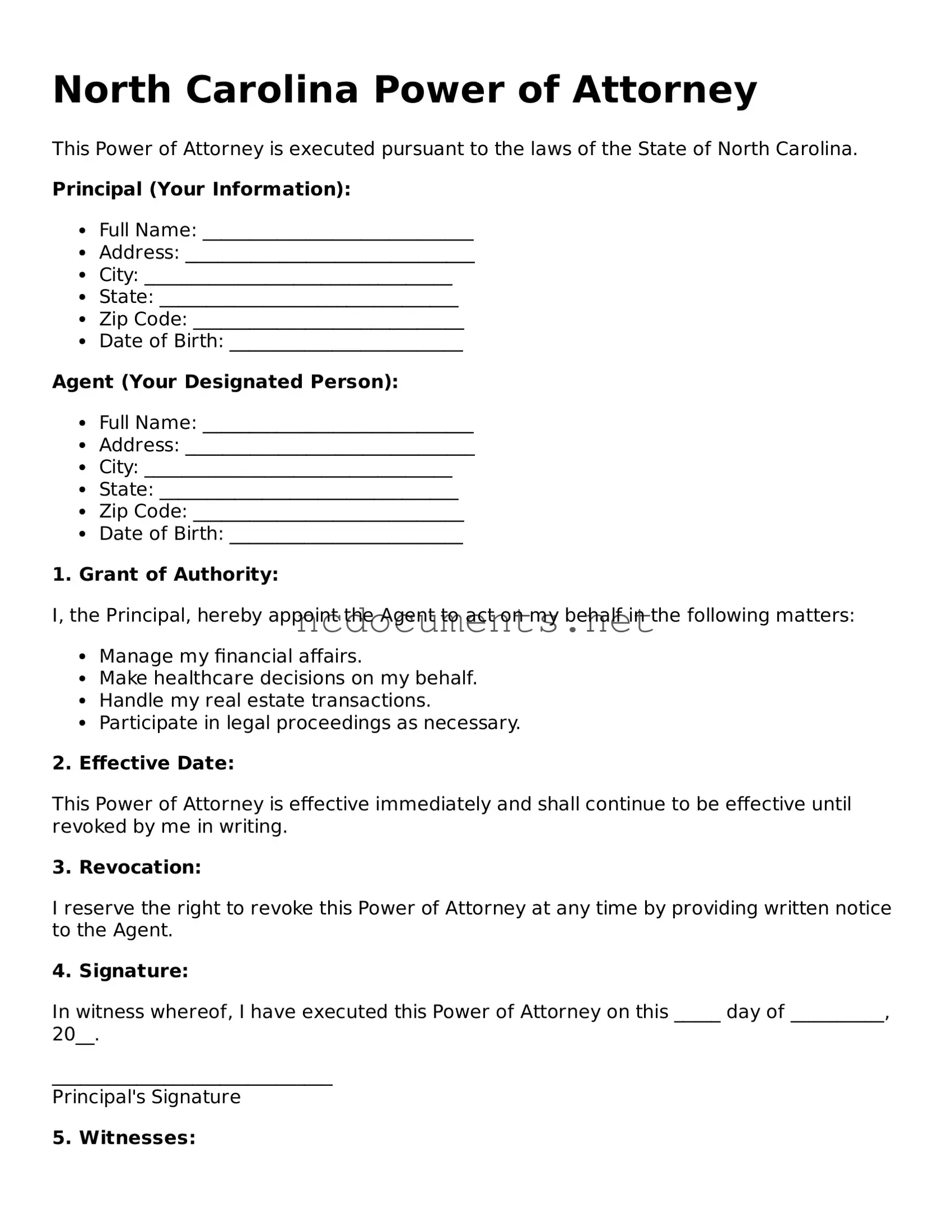When individuals fill out the North Carolina Power of Attorney form, several common mistakes can lead to complications or even invalidate the document. One prevalent error is failing to specify the powers granted. Without clear definitions, the agent may not have the authority needed to act on behalf of the principal. This lack of clarity can create confusion and hinder the agent's ability to make timely decisions.
Another frequent mistake is neglecting to date the document. A Power of Attorney must be dated to establish its validity. If the form lacks a date, it may raise questions regarding when the authority was intended to begin, potentially leading to disputes among family members or financial institutions.
Inaccurate identification of the principal and agent is also a common oversight. It is essential to provide full legal names and addresses to avoid any ambiguity. If the information is incorrect or incomplete, it can result in the document being deemed ineffective or unenforceable.
Some individuals overlook the requirement for witnesses or notarization. In North Carolina, certain types of Power of Attorney documents must be signed in the presence of a notary public or witnesses. Failing to meet these legal requirements can render the document invalid, leaving the principal without the intended protections.
People often forget to revoke previous Power of Attorney documents. If an individual has executed multiple Power of Attorney forms, the most recent one should explicitly revoke any prior documents. Not doing so can create confusion about which agent has authority, leading to potential conflicts.
Another mistake is not discussing the Power of Attorney with the designated agent. Open communication is vital to ensure that the agent understands their responsibilities and the principal's wishes. Without this discussion, the agent may act contrary to the principal's intentions, leading to unintended consequences.
Some individuals may also fail to consider the scope of the powers granted. A general Power of Attorney gives broad authority, while a limited Power of Attorney restricts the agent's powers to specific tasks. It is crucial to carefully consider which powers to grant to avoid potential misuse or overreach by the agent.
Neglecting to review the document regularly is another common oversight. Life circumstances change, and so do the needs of the principal. Regularly reviewing and updating the Power of Attorney ensures that it remains aligned with the principal's current situation and intentions.
Lastly, people may not seek legal advice when filling out the form. Consulting with a legal professional can help ensure that the document complies with state laws and accurately reflects the principal's wishes. Without such guidance, individuals risk making errors that could have significant implications for their future.

